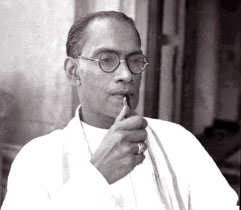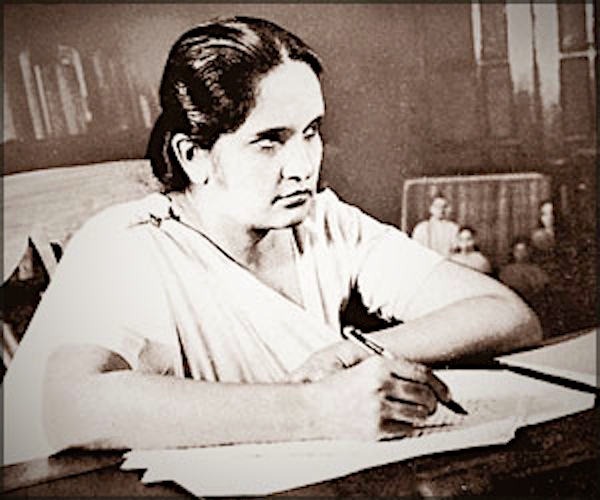Thirteenth Amendment more a political issue than a legal or constitutional one.
“If you chase two rabbits, both will escape.”
~Unknown author
Pundits argue and debate. Constitutional lawyers ponder and deliberate. Newsmen report and sometimes distort beyond recognition; but the decision to implement the Thirteenth Amendment in full, both in chapter and verse and in spirit, is not a legal or a constitutional one;
nor is it an academic exercise; it is fundamentally a political decision, a decision bearing such a burdensome magnitude, it comes but rarely in history and falls only on rarer leaders and the rarest have the courage, stamina and will power to withstand and endure. The courageous carry it to a finish while the weak-stomached and softies fall by the wayside. That is precisely what befell S W R D Bandaranaike in 1957 and Dudley Senanayake in 1968. Both S W R D and Dudley entered into agreements with the leaders of the major Tamil political party at the time, Illankai Tamil Arasu Kachchi (ITAK), more popularly known as the Federal Party, but did not possess that quality of endurance and will power to implement the respective Pacts.
“The 13th Amendment is very much akin, maybe not in legal construction and political structure, but in détente-spirit to the fundamentals of the Bandaranaike-Chelvanayakam Pact and Dudley-Chelvanayakam Pact.” In the fifties and sixties, when the leaders of the Sri Lankan governments were seen as more liberal-minded- both Dudley Senanayake and S W R D Bandaranaike were considered quintessential liberals- J R Jayewardene was reckoned to be a conservative in the traditional sense of the word. As a matter of fact, the then left-wing politicians used J R for their target practice, hurling many a scornful political insinuation to brand him as a regressive, anti-socialist capitalist safeguarding the interests of America and the western world rather than traditional Sri Lankan values.But fate so decreed that it was this ‘conservative’ leader who had the stomach, guts and resilience to introduce and implement an ‘action plan’ to accommodate the long-awaited demands/interests of the Tamil people. That ‘action plan’ came in the form of the thirteenth Amendment and its partial implementation has taken deep root in this country’s administrative life over the last twenty five years resulting in the emergence of regional political leaders who rendered a new dimension to local politics.
Furthermore, the Thirteenth Amendment is the only ‘concession’, so to speak, the Tamils of Sri Lanka obtained from the Sinhalese leaders since they began their struggle for ‘self-rule’. The unaccommodating nature, not only of the leaders but also of members of both communities, Sinhalese and Tamil, in the sphere of ethnic and social relationships, has contributed to the festering of these time-worn,
socio-political wounds making it impossible for any mutual accommodations to be real and tangible. Viewed against this complex background, the introduction of the 13 A under most brutal conditions, when the then Parliamentary Opposition led by the Sri Lanka Freedom Party at the front end of which were Mrs. Sirimavo Bandaranaike, Anura Bandaranaike and the present President Mahinda Rajapaksa on the one hand and the killing forces of the Janatha Vimukti Peramuna led by its murderous leader, Rohana Wijeweera on the other were resolutely opposed to it, and its eventual enactment and implementation have benefitted most of those who opposed it at the time. But such duplicity in politics is quite understandable and may be even pardonable in that, making use of the prevailing realities to one’s advantage is a given norm practiced by most ‘realistic’ politicians.
Commenting on the prevalent conditions in the country in 1987, when the 13 A was introduced, Sri Lanka’s foremost historian, Professor K M de Silva in his short book “Sri Lanka and the Defeat of the LTTE” states thus: “The debate on devolution of power in Sri Lanka, and the passions that discussions on regionalism and regional autonomy arouse, illustrate two vital themes. The first concerns the dilemmas that confronted the political establishment in the recently independent nations in conceding legitimacy to regional loyalties. The political establishments in these nations, as legatees of departing imperial powers, passionately protected their territorial inheritance in the shape of the state bequeathed to them at the time of the transfer of power.They regarded centralized authority as an essential political and administrative instrument at their disposal. They often justified this by arguing that centralization was essential for the introduction and management of processes of social change designed to eliminate poverty. In such a situation, anything likely to encourage, if not lead to, communal or ethnic fragmentation was regarded with utmost suspicion.”(Page 57, Sri Lanka and the Defeat of the LTTE by K M de Silva, Vijitha Yapa Publications). So the opposition to devolution of power, even to the tiniest possible degree was linked with the ferocity of vendetta and revenge customarily found in tribally-divided ‘nations’. The western media’s unkind characterization of Sri Lanka’s army as a ‘tribal army’ was consequent to this predisposition of the Sinhalese people.
The very birth of the Thirteenth Amendment was a political carriage which is, more often than not, described as a miscarriage of justice to the majority community by half-baked intellectuals and academics who profess blind chauvinism as patriotism. Non-accommodation of the interests of a minority is not only uncivil; it is against all norms in the field of fundamental human rights. One great example of a majority being magnanimous towards a minority is the black race of South Africa. Especially after enduring cruel persecution for a long period of time by the apartheid policies of the minority rulers and with Nelson Mandela enduring almost thirty years in a tiny cell in prison in his own country, they chose to forgive their tormentors. Such brave spirit of endurance and forthrightness is uncommon; rarely in history does such human magnanimity manifest itself in human form. We apparently are not blessed with leaders of such dignity and unparalleled esteem.
History has bestowed on the current leader of Sri Lanka such a burdensome opportunity. If Mahinda Rajapaksa chooses to wriggle out of a thorny political situation he would only do so to evade the burden of leadership. He has to balance the pressures of India against those of local politics which in a very realistic sense is the creation of his own Party’s chauvinistic propaganda. When such a local milieu is further complemented by a military victory, in the wise words of Dr. Dayan Jayatilleke, “Military victory by the Sinhalese majority over the Tamil terrorists is a winning issue as far as the local electoral politics is concerned and it would indeed be an intimidating task for any opposition political party to dislodge the current incumbent from office.
But the uncomfortable part for the Government is their naked duplicity and the transparent hypocrisy is so obvious that, no human nostril would come close as the nauseating stench that emanates from the Government would blow any decent man, woman or child away from the cracked veneer that seems to protect the decomposing carcass of decency and fair-play.

